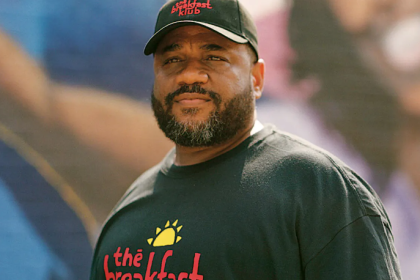You’ve done everything right. Vision board? Check. Five-year plan? Absolutely. Morning routine that would make a CEO jealous? You’ve got that too. So why do you still feel like you’re wandering through a maze without a map?
Here’s the uncomfortable truth – all that goal-chasing might be exactly what’s making you feel lost.
The hamster wheel of achievement
We live in a culture that worships at the altar of productivity. Set a goal, crush it, set a bigger one, repeat. It’s the formula we’re told leads to fulfillment and success. But for many of us, it’s becoming a hamster wheel that spins faster with each rotation.
The problem isn’t with having goals. Goals can be wonderful tools for growth and direction. The issue emerges when we build our entire identity around the pursuit and achievement of those external markers.
When you tie your self-worth to checking boxes, you create a dependency on constant achievement. That promotion you fought for delivers a hit of satisfaction that fades faster than expected. The weight loss goal you reached somehow morphs into a new, more demanding target before you’ve even celebrated. Your mind has been trained to ask “what’s next?” before you’ve even finished saying “I did it.”
This perpetual forward motion keeps you from ever feeling like you’ve arrived. And ironically, the more goals you achieve, the more lost you might feel.
The false promise of clarity
We’re told that setting clear goals creates clarity. Define what you want, and the path will reveal itself. But this assumes we already know what will truly fulfill us – a bold assumption that often proves incorrect.
Think about it – how many times have you achieved something you wanted desperately, only to discover it wasn’t what you expected? The dream job that turned out to be a nightmare of stress. The relationship that was supposed to complete you but left you feeling emptier. The beautiful home that somehow amplified your restlessness rather than curing it.
This happens because we’re notoriously bad at predicting what will make us happy. We chase goals based on social conditioning, comparison, and outdated versions of ourselves. No wonder achieving them can leave us feeling disoriented rather than satisfied.
When the map doesn’t match the territory
Goals are essentially predictions – educated guesses about what path might lead to fulfillment. The problem is that we tend to cling to these maps even when the actual territory of our lives changes around us.
You made a five-year career plan when you were 25, but at 28, you discovered a passion for something entirely different. Do you stick with the plan because you made it, or adapt to this new information? Too often, we choose the former, creating an ever-widening gap between what we’re pursuing and what actually resonates with our evolving selves.
This misalignment creates a peculiar form of cognitive dissonance. On paper, you’re succeeding. In your heart, you’re increasingly confused about why the success feels hollow. This disconnect is a primary source of that “lost” feeling – you’re following directions to a destination you’re no longer sure you want to reach.
The identity crisis of achievement
Perhaps the most disorienting aspect of goal-chasing comes when you actually achieve a major life goal. After the celebration fades, many high-achievers face an unexpected identity crisis.
When you’ve spent years defining yourself as someone striving toward a specific outcome, who are you once you’ve reached it? This void can be profoundly unsettling. Without the organizing principle of that pursuit, many people feel suddenly directionless.
This explains why many entrepreneurs feel strangely empty after selling their companies, why some athletes spiral after retirement, and why reaching the corner office can trigger existential questions rather than satisfaction. The goal that once provided structure has disappeared, leaving you to confront the uncomfortable question of who you are without it.
The metrics mirage
Our goal-obsessed culture encourages us to focus on what’s measurable rather than what’s meaningful. Weight, salary, followers, likes – these concrete metrics become proxies for much more complex and nuanced forms of fulfillment.
The problem is that the most important aspects of a well-lived life resist easy measurement. How do you quantify connection? What’s the metric for purpose? Where’s the scorecard for living in alignment with your values?
When we fixate on measurable goals, we often sacrifice these deeper, more nebulous forms of satisfaction. We optimize for what we can track and inadvertently neglect what truly matters. No wonder achieving all our measurable goals can leave us feeling like something essential is still missing.
Finding your true north
If traditional goal-setting is creating more confusion than clarity in your life, it might be time to shift your approach. Here’s how to begin:
- Prioritize direction over destination. Instead of fixating on specific outcomes, identify the qualities you want more of in your life – connection, creativity, impact, learning. These directional values can guide your choices without locking you into rigid endpoints that may not serve your evolving self.
- Practice regular reflection. Set aside time each month to check in with yourself honestly. Are your current pursuits energizing or depleting you? Do they still align with what matters most to you? This ongoing dialogue with yourself prevents the autopilot goal-chasing that leads to feeling lost.
- Embrace purposeful experimentation. Rather than committing to massive five-year plans, try smaller experiments that allow you to gather information about what actually fulfills you. This approach keeps you connected to your current truth rather than outdated assumptions about what you want.
- Redefine success as alignment. Start measuring success not by external achievements but by alignment between your daily activities and your core values. This internal compass provides more reliable guidance than socially prescribed milestones.
The courage to change course
Sometimes the bravest thing you can do is abandon a goal that no longer serves you. Our culture celebrates persistence, but there’s profound wisdom in recognizing when a path isn’t taking you where you truly want to go.
Changing direction doesn’t mean you’ve failed. It means you’re listening to yourself more carefully than you’re listening to external expectations. It means you’re courageous enough to admit when something isn’t working and humble enough to adjust your course.
The most fulfilled people aren’t those who relentlessly pursue and achieve every goal they set. They’re the ones who remain flexible, who prioritize alignment over achievement, and who have the courage to rewrite their definition of success as they grow.
So if you’re feeling lost despite checking all the right boxes, perhaps it’s not that you need more goals or better goals. Perhaps what you need is the courage to question whether goal-chasing itself is truly the path to the life you most deeply want.















